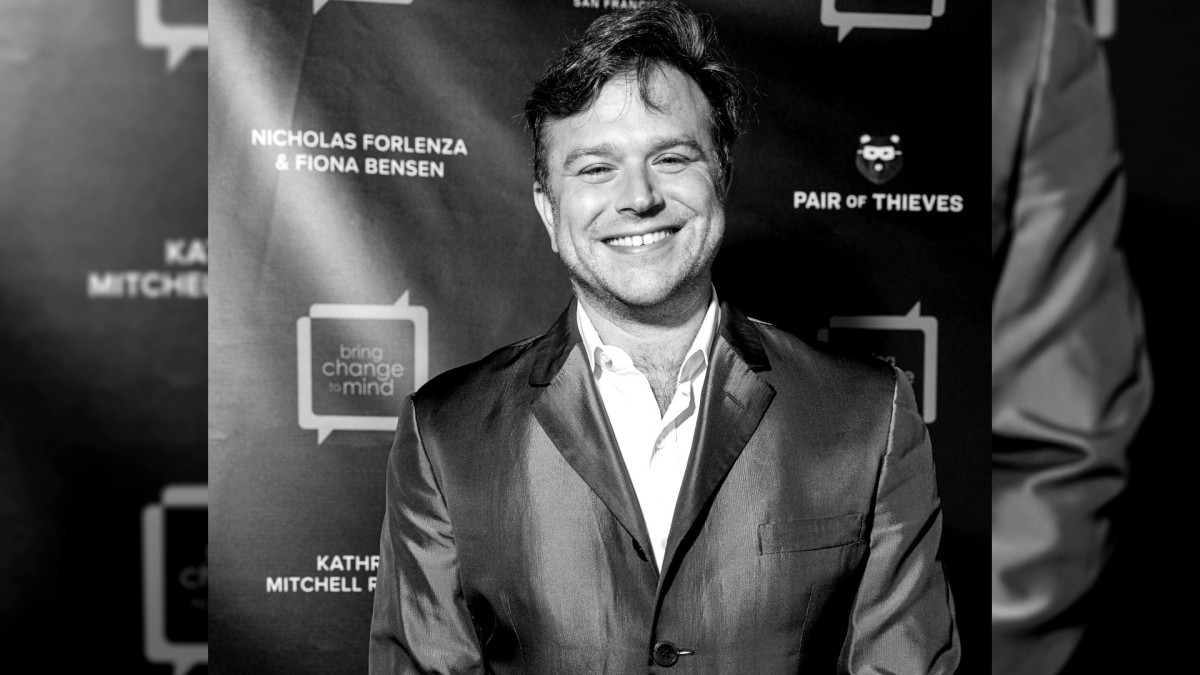
The genius of Robin Williams has been immortalized in his many films. The world will forever know him as the teacher who inspired a generation to shout carpe diem, the professor who showed brilliance and social status are not mutually exclusive, and the nanny who left no doubt that a parent’s love is limitless. While the public remembers the energy and talent that cemented the Oscar winner’s legacy, his eldest son, Zak Williams, remembers the unconditional love and support of a father who wanted his children to find happiness.
On a recent episode of the “Men’s Journal Everyday Warrior Podcast,” we spoke with Zak about his dad, his humanitarian work, and more. In this article, we look at what it was like growing up with a famous father, what he’s learned about happiness, and how he turned unimaginable pain into unrelenting purpose.
Creating normalcy in chaos
As children, we believe everyone’s life mirrors our own, even when our experiences are far from average.
Zak is a great example. “I saw the [movie] sets, the different actors manifesting on-screen, and thought it was…all part of a normal experience,” he says.
Although his father was a movie star, his parents raised him away from the bright lights of Hollywood.
“Growing up in San Francisco, there was a [separation] between everything going on with my father’s career and our home life,” says Zak.
Whether living there was about his parent’s love for the Bay Area or grounding the family in normalcy, it was undoubtedly a calmer upbringing. Ultimately, their reason is less important than the outcome, which is what Zak describes as a “normal childhood.”
Do what makes you happy
There’s an expectation that the children of celebrities either follow in their parent’s footsteps or succeed in another lucrative profession. While some of this pressure is external, especially in today’s social media culture, much of these expectations come from parents who believe their children’s success reflects upon them. Choosing a career is one of life’s most consequential decisions; when people select a profession based on earning potential or parental approval, they often find themselves trapped in unfulfilling careers.
Some people know what they want to do early in life, whereas others take longer to find their calling. While Zak took a while to pinpoint his passion, he always knew his father wanted him to be happy.
“There’s surface-level happiness, and then there’s deep, meaningful, fulfilling happiness,” says Zak. “[As] my definition of happiness evolved…I discovered that service was my path to happiness,” he adds.
Recovery is a journey
On August 11, 2014, Robin died by suicide after silently suffering from Lewy Body Dementia, a brain disease that affects a person’s thinking, memory, and mobility. Traumatized by his father’s passing and dealing with several personal issues, Zak’s private struggles with alcohol came to the forefront. He continued self-medicating for years before realizing, “I can’t continue this and [expect] to have a happy outcome.”
Zak wasn’t alone on his recovery journey. Long-time friend Olivia June helped him find his way back and showed him the importance of self-care.
“She helped me understand that [I wasn’t] taking care of myself and that I needed to look at what I was doing [each] day and recalibrate around that,” says Zak. “We were just friends at that time…but soon discovered we were destined to start a life together,” he adds.
After getting married on World Mental Health Day 2020, the couple went into business with the founding of PYM (Prepare Your Mind). The company’s website states, “PYM’s mission is to provide safe, natural, and effective mental hygiene products to promote self-care and end the stigma around mental health.”
Finding purpose
Richard Branson famously said, “There is no greater thing you can do with your life and work than follow your passions in a way that serves the world.” After five years of sobriety, Zak now recognizes that following his passion for service was essential to his healing and recovery. An advocate for mental health issues, Zak works to spread awareness about suicide prevention. He believes that our nation must change its approach to suicide, saying, “We need to remove the blame; people aren’t going to reach out for help, especially to family and friends, when there’s a stigma associated with it.”
In August, Zak began educating millions of listeners about suicide prevention as a special correspondent on the CALL FOR HELP podcast. The four-part series, which he co-produced with Lemonada Media, looks at the newly launched 988 Suicide & Crisis Lifeline and the challenges facing America’s mental health system.
“The purpose [of 988] is to help navigate people to a more contextual model of care,” says Zak. Many people avoid mental health services out of fear that it will elicit a law enforcement response. Zak explains that calling 988 connects those experiencing emotional crises with trained mental health professionals, not the police.
Although his path has been difficult, each hardship Zak experienced along the way has prepared him to be an effective advocate and make a lasting difference. While Robert Brault didn’t write the following passage with Zak in mind, the author’s words seem prophetic of his experience: “Sometimes in tragedy, we find life’s purpose. The eye sheds a tear to find its focus.”
Comments are closed.